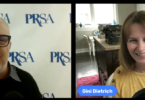Though it will take years to heal for the families directly impacted by the events in Tucson, it will forever become a part of our nation’s legacy of tragedies. We all share the sorrow, but at the same time try to place the blame in order to justify what happened and attempt to figure out how to stop it from happening again.
Last week, our country heard a compassionate plea from our President to take action — not to condemn but to comfort; not to succumb to the negative forces of anger, but to assuage.
“At a time when our discourse has become so sharply polarized, at a time when we are far too eager to lay the blame for all that ails the world at the feet of those who think differently than we do,” President Obama said, “it’s important for us to pause for a moment and make sure that we are talking with each other in a way that heals, not a way that wounds.”
As saddening as this tragedy was, many have been equally distraught by the media and political maneuvering taking place around this tragedy as a means to place blame on their opponents. While one usually defends this through cries of free speech and the public’s right to know, is that what really drives the conversation? Is there a culpability of media in its impact on society? On mentally-imbalanced persons? On our youth?
Can one clearly talk about “free speech” when you delve into the business, realizing that it’s driven by advertising and ratings increased by conflict and controversy?
If we decide to open this debate to one of free speech, what, then, is the role of public relations in that discourse? If we profess to help manage the relationships and the communication for the companies and organizations we represent, we also have a role in setting the tone and managing the vitriolic messages that are rampant in the media today. And, do we counsel in one manner, and personally act in another?
Today, more than ever before, disparate voices are heard. Too often, however, they are heard in isolation — the echo chamber of the social Web or within niche websites that support only one voice, or one ideology —without any opposing view, context or explanation. Media has sequestered opinion and made it a commodity instead of helping to create a two-sided conversation. Much of this has to do with the economics and corporate board of directors that are focused on profit, not promotion of ideals. Perhaps the “fourth estate” has now become too enamored of its own influence and success to remember why it was originally protected under the First Amendment.
While public relations cannot solve this issue on its own, we can act as a profession to speak out. We can translate the principles in our Code of Ethics to actions that facilitate the free flow of accurate and truthful information and informed decision making through open communication. We have the opportunity that is afforded by technology to add a voice that inserts dialogue, promotes compromise, increases understanding and, in the end, creates a conversation that recognizes and respects difference without being vindictive.
I challenge each of you to add comment to stories and editorials that bias readers toward polarizing views. Take up your tools to add to the voice of reason when the conversation becomes too destructive or demeaning. Question those who deride others as to their real intent, when their actions ultimately drive profit for media conglomerates. But most importantly, do what we do as a profession — work to build relationships that respect and create compromise that can positively impact our communities, our society and our world.
Gary McCormick, APR, Fellow PRSA, is immediate past chair and CEO of the Public Relations Society of America, and director of partnership development at HGTV in Knoxville, Tenn.







Nice post, Gary. You’re blending several themes — political manuvering, media polarization and PR’s role during tragedy — that are tough to conjoin.
Political manuvering is always difficult to analyze, because it’s never fully clear if each politician is making a statement in the interest of the public, or in the self-interest of protecting a party and votes. You would think these things would be aligned. When you suspect they’re not, voters should let the ballot box do the talking. I’m not sure if PR has a direct role here.
Media polarization is also complex but, I suspect, cyclical. “Seeking ratings” is a self-fulfilling endeavor. There would be no Glenn Beck or Keith Olbermann commentary “at the edges” if there weren’t public markets for this. Thus, like any other business, it’s tough to lay blame with the media. PR’s role here is probably best to be aware of the current cycles, and to communicate accordingly in the public’s interest…to balance the edges when we can.
PR has many roles to play in tragedy, but this depends on which audience we’re representing and which we want to reach –most directly to victims and families of victims and most broadly to giving context to at-first-disinterested publics. The trick: to do this effectively, knowing that political motivations and media polarization will bend the messages accordingly.
Thanks for your thoughtful comment, J.D. You make a good point that it’s tough to tie public relations with a direct role to political rhetoric and maneuvering. But, I do think that our role in this comes down to ensuring the public is presented with accurate and truthful information that is in their best interest, from a variety of sources.
Ironically, in that regard, we can likely do more to act as a real-time watchdog for media and political motivations and polarization. We have the tools, resources and knowledge to effectively and efficiently reach wide audiences, and we should use those capabilities to help establish context and discern facts from fiction when we see inaccuracies being perpetuated in the media or by politicians.
Words are powerful. And public relations practitioners must understand that.
I think we forget as professionals how powerful we are. We have been given a voice; we get paid to connect people with ideas and each other. We have the opportunity to channel the flow of information in a positive way and for the greater good of our society.
We should be an organization’s conscience as well as a cultures.
Ann Marie,
Your point about the power public relations professionals hold as connectors between organizations and the public is an important one to consider. Particularly as many in society and business reflect on their role during tragedy or crisis, it’s important to keep in mind that at the heart of our jobs, public relations professionals are connectors; we help the public and business community connect with each other in a mutually-beneficial manner that can do far more good when we utilize our strengths appropriately.
I also like your point about public relations being “an organization’s conscience as well as a culture.” Reading that sentence, one might assume that those two components (conscience and culture) would often remain separate with diverging goals, but I think it’s relevant to argue that when public relations is most successful, it truly brings together an organization’s altruistic components (its “conscience,” if you will) with its business focus, and melds those together so that consumers, the public and stakeholders all benefit.
I think we have to be careful to not put too much blame on the media. Everyone has a voice. Public relations professionals in particular have been granted a platform from which to speak and a training to use that platform that not many have. While you’re right in saying we can’t solve this on our own, there’s a power in that which is often forgotten. It’s unfortunate that it takes a tragedy to remind us of this.